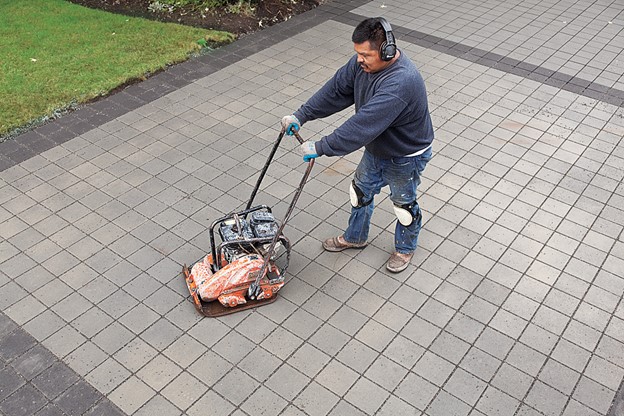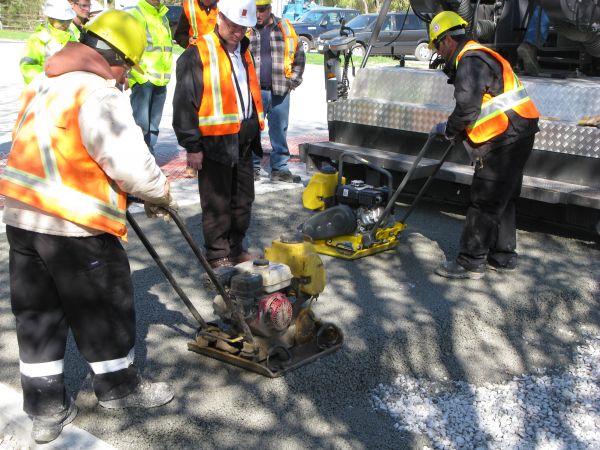Tamping
Jump to navigation
Jump to search
Tamping is an important construction step when installing permeable pavements systems. Tamping allows for the permeable surface (concrete or pavers) to set and adhere to the bedding layer beneath. Tamping also allows for flattening or evening out the surface, resulting in visually appealing finish.
Construction Steps:
- Remove any pieces that have imperfections on the surface.
- Place the tamper onto the pavement surface.
- Pass the tamper across all the pavement area.
Key Inspection Points:
- Equipment: According to the (City of Edmonton, 2016)[1], tamp the permeable surface with a "low amplitude plate vibrator (22-kN) compaction force at 75 to 95 Hz".
Mistakes to Avoid:
- Pervious Concrete
- Delays in tamping the pervious concrete. Tamping should be completed no more than 15 minutes after the concrete was placed.
- Permeable Interlocking Concrete Pavers
- Not placing a rubber pad beneath the tamper, as it could damage the surface of the pavers.
Tamping of Permeable Interlocking Concrete Pavement units after being placed on-site.
(This Old House, 2022)[2]
- ↑ City of Edmonton. 2016. Low Impact Development Construction, Inspection & Maintenance Guide. Edition 1.0. https://www.edmonton.ca/public-files/assets/document?path=LID%20CIM%20Guide.pdf
- ↑ This Old House. 2022. How to Install a Permeable-Paver Driveway. Photo. Accessed August 2022. https://www.thisoldhouse.com/driveways/21016426/how-to-install-a-permeable-paver-driveway

